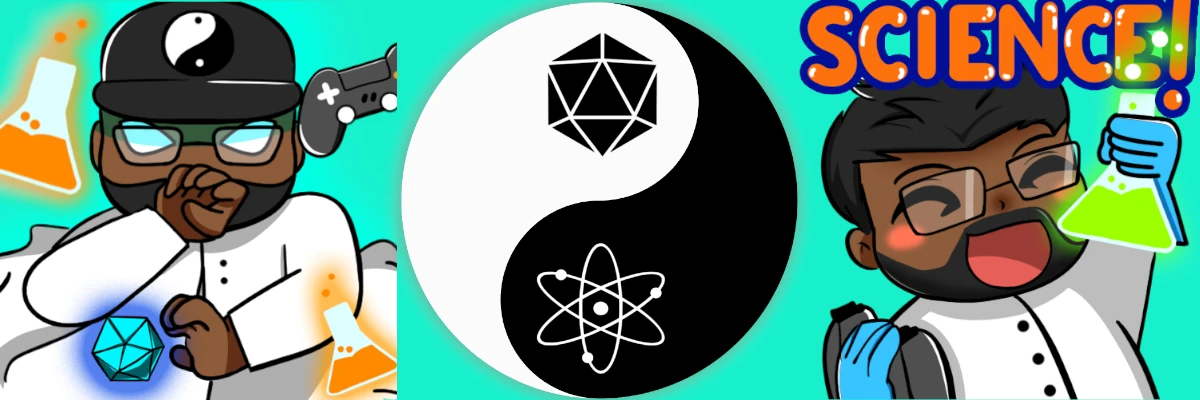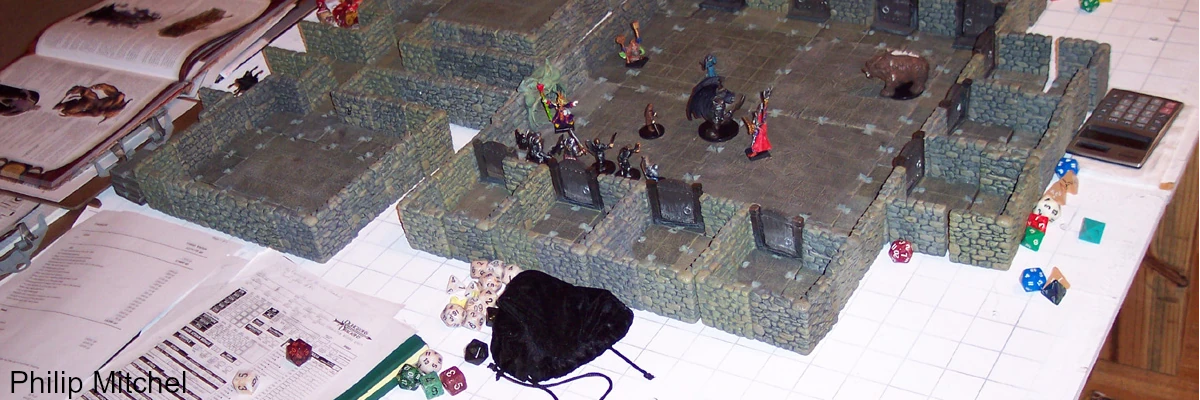Greetings adventurer! and welcome to my first article on the Trunk Sage’s Grove website. This manuscript is actually a script for a video I planned about five years ago, which I’ve been procrastinating on creating. I rewrote it as an article for my media company's website in 2020, which I have since allowed to expire after focusing on academia to complete my postdoctoral fellowship. But here we are as a professional dungeon master in 2025 and an update on the science of both games, the Dungeons AND the Dragons…
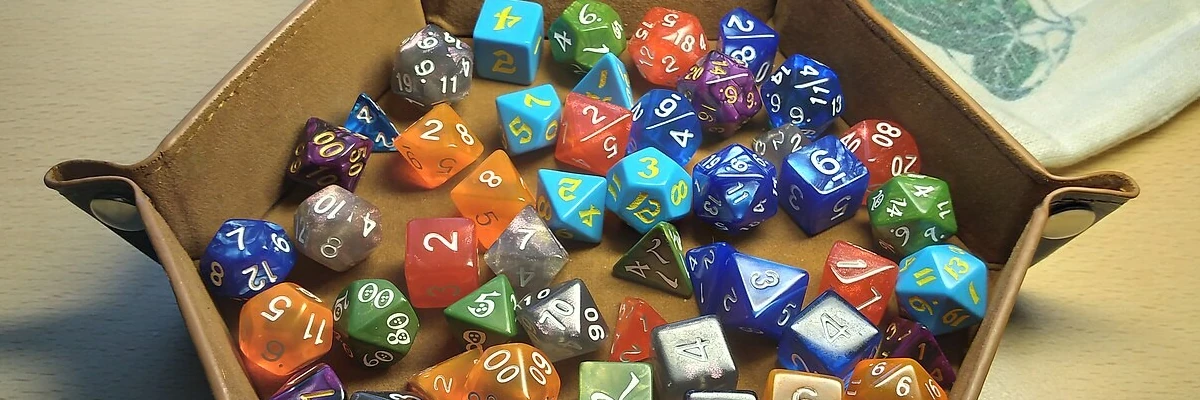
What be D&D?
For the uninitiated here, Dungeons and Dragons is a tabletop role-playing game system, developed in the 1970s by war game and fantasy fiction aficionados Gary Gygax and Dave Arneson. The game system has undergone several iterations over the years, culminating in the release of the 5th edition in 2014, which introduced easier accessibility and playability to the game, making it more approachable for newcomers. This, combined with some interesting technological advances and intriguing pop culture moments, catapulted the game into newfound relevance and popularity in modern geek culture.
Now you might be asking… what exactly is this “tabletop role-playing game” nonsense you speak of? Well, to put it simply, my dear adventurers, such games are shared storytelling experiences where players embody a character they have created using a set of rules that dictate what they are able to do, or do well, or do poorly. These characters usually come with a wide array of statistics and abilities that define who they are and help them accomplish certain tasks better, or worse, than others. This allows them to have a certain uniqueness, and, I suppose, usefulness in a group adventure. Speaking of group adventures, one of the players in the game is responsible for guiding the story, embodying the non-player characters that the other players interact with, as well as the creatures and environments they may encounter on their exploits, encompassing the very world itself. This player is what I like to refer to as a human video game engine of sorts.
But of course, running the game with the aid of some simulated randomness provided these little plastic polyhedral troublemakers. But now that’s where the magic is, my friends, because while there may be rules that one can adhere to, you are really only limited by your imagination. This allows you to be creative with what you can do, in a way that open world video games, for instance, simply cannot… or just yet, at least. Although I’m sure they will get there eventually, hopefully not in my lifetime. Now you might have another question… where exactly is the science in all of this? Well, my dear adventurers, the science lies within the very imaginative minds of the players themselves and how it impacts on their psychology and sociology. So let’s explore that, shall we… The Science of Dungeons and Dragons on human psychology.
The Science of D&D
Dungeons and Dragons is inherently a co-operative gameplay experience. A team of people come together at a prescribed time and place in order to embody an imaginative team of super-powered characters that must overcome various challenges, conflicts and choices in order to be rewarded when their job is complete at the end of the day, be it with wealth, renown or for personal reasons (#backstorythings). The dungeon master is by no means left out in this endeavour, as they are responsible for guiding the story, character interactions and the growth of player characters as well as the group dynamic. As such, the act of playing Dungeons and Dragons may be akin to a simulation for life itself, at least for the social interactions, team-building, cooperation and moment-to-moment decision making that may exist therein. Because these actions and decisions don’t affect the real world (most of the time at least), a player can explore how certain actions and interactions may play out. The open nature of role-playing games also makes it an inherently creative experience. Every action a character makes has consequences and a reaction from the world, and as such, a moment in their story is created. Now you might think… “agh! This is all make-belief. How does this translate to any real-world impact?” Well, my dear adventurers, that’s because our brains have developed to explain and frame the world through story. Biologically speaking, human beings are, in essence, storytelling machines and the stories we are told or tell ourselves shape our perceptions of our world.
Many new studies are beginning to explore in detail how roleplaying can affect human psychology and sociology. So the work being done on this is fairly new. However, as a result of this, role-playing games are increasingly becoming a useful tool for team building in companies and therapy for certain mental health issues. One of the most prominent practitioners of D&D as therapy is Dr. Megan Connell, who uses the game to foster empowerment in young girls, specifically through the "Self-Rescuing Princesses" program, as well as potentially helping former active-duty veteran soldiers with their transition to civilian life after reintegrating into society. Dr Connell also runs a show called “Psychology at the Table”, which teaches DMs how to help their friends through mental health challenges. She puts this into practice with an RPG actual-play stream called “Clinical Roll” together with fellow therapeutic game masters on the “Geek’s Like Us” YouTube and Twitch channel. Certainly worth a look.
Since I first wrote this article, accredited courses have been developed to teach therapeutic game mastering, which can now count toward credit for psychology degrees, i.e https://geektherapeutics.com/education/

Dungeon Research
and Dragons was believed to promote a behaviour of suicide or homicide. And, well, thankfully, according to the American Association of Suicidology, it did not. But given the mysterious basement dwelling, cosplaying and simulated monster killing acts of playing the game, there was a general sense that, uh, well, “panic” from outsiders looking in.
In the 90’s we began to see the glimmers of work being done regarding fantasy games as psychotherapy. This case study on using modified fantasy games to treat a teenager with depression showed a marked increase in social activity when starting Dungeons and Dragons sessions, and he began to better communicate emotions to his therapist (the author) through summaries of the game. This allowed him to eventually translate his fantasy self into reality, improving his therapy and, subsequently, his social life. The author sums this up by quoting, “Psychotherapy has to do with two people playing together. The corollary of this is that where playing is not possible, then the work done by the therapist is directed towards bringing the patient from a state of not being able to play into a state of being able to play” - Winnicott D.W. (1971). Playing. A theoretical statement. In Playing and Reality, New York: Basic Books.
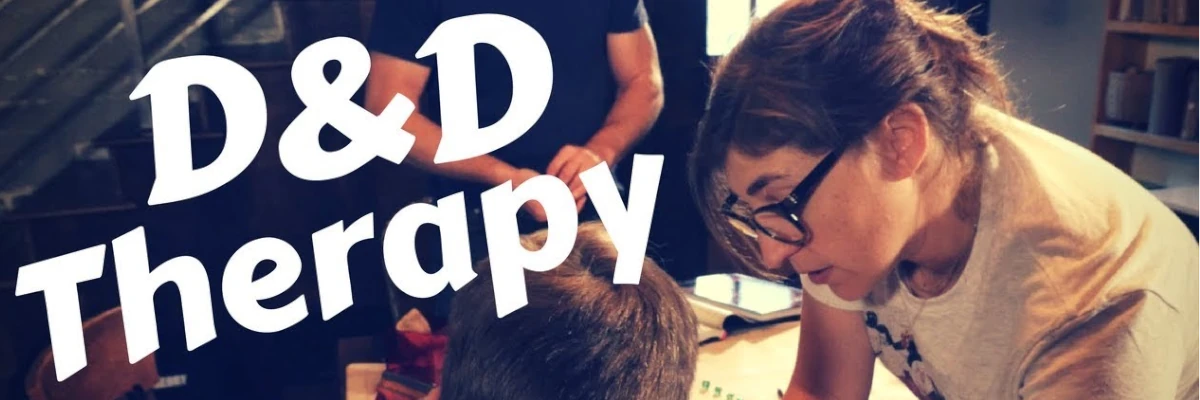
In the late 2000’s, now coordinating editor for the International Journal of Role-Playing, Dr Sarah Lynne Bowman conducted PhD research on “the psychological power of the role-playing experience” manifested by theatre, drama therapy, military simulations and of course role playing playing games. She then broke these effects down into three primary psychological processes: i.e. Identity alteration, scenario building and "communitas". Dr Bowman posits that roleplaying allows for people to set aside their main ego and adopt a new identity with qualities the original lacks or is uncomfortable with. This allows the player to explore new avenues and create influence otherwise unavailable to them in the real world. Thus, providing a platform that lets the player to meet certain emotional needs. A recent study (Adams 2013) at the University of California confirmed that Dungeons and Dragons allows players to meet emotional needs such as practising democratic ideologies, maintaining friendship and camaraderie, experiencing the extraordinary or exploring the age-old battle of good versus evil. Scenario building in D&D often provides players an avenue for problem-solving with abilities otherwise unavailable to them in reality. Time can be slowed down in the game, allowing players to think or collaborate on solutions, allowing them to greatly influence the outcome. This allows for a continuous co-creation of narrative, which is exciting to our storytelling-driven brain. And for our brains these stories have “real world” uses as indicated in a paper in Studies in Cultures, Organisations and Societies, as we cannot totally disconnect fantasy imagination from our everyday experiences (Kociatkiewicz, 2000). On the note of continuous co-creation, this is inherently co-operative, which creates a sense of “Communitas” or community in which the participants are equal. Roleplaying games embody an almost ritualistic nature, rituals wherein “Lessons are learned, bonds are broken and reformed, and life is breathed into new creations,” to Quote Dr. Bowman.
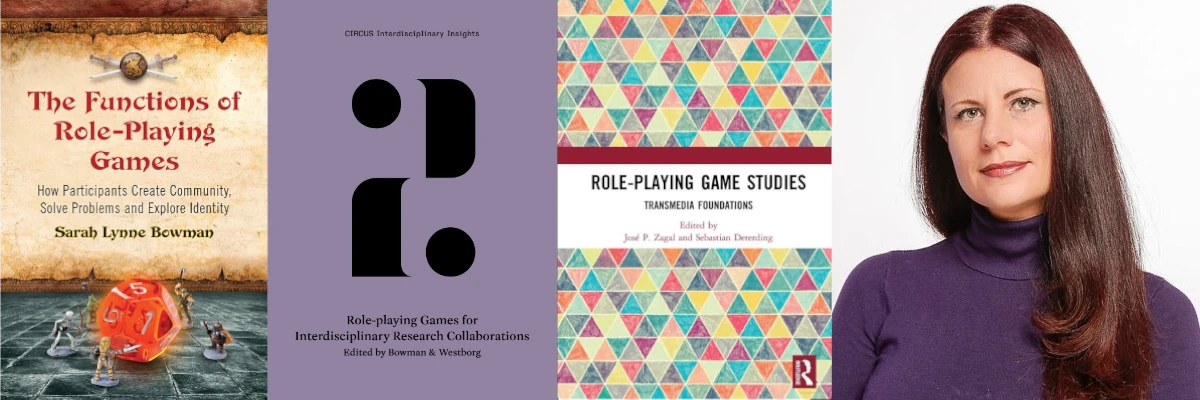
Well now, I think I’ve rambled on for a bit too long at this point, but I feel confident that I’ve established a solid foundation for some of the scientific aspects regarding playing Dungeons and Dragons. I hope you enjoyed this venture and, at the very least, learned a thing or two. If this has indeed sparked your curiosity, let me know in the comments down below, and while you are at it, let me know if you would enjoy more scientific explorations into D&D as the literature on the topic expands. Be sure to subscribe, follow, bookmark, mark your calendar, synchronise your watches or do whatever you kids on the interwebs need to do to stay updated for more philosophical deep dives into geek culture such as this. But for now, my fellow adventurers, I must sadly bid you adieu, until next time, have a wondrously philosophical day as I float away on my magical carpet of flying.
Notes
Roleplaying can be an active learning experience that may help change behaviour.
This was highlighted in a TED talk by education researcher Sunita Sanaya about alleviating bullying with roleplaying.
https://www.youtube.com/watch?v=NCxPIeVyqXE
As a result of this, role-playing games are increasingly becoming a useful tool for mental health therapy.
https://www.youtube.com/watch?v=tv0okhnpffo
D&D can be an easy way to create friend and family bonding time, as highlighted by Big Bang Theory actress Mayim Bialik
https://www.youtube.com/watch?v=mu1QT11DPKA
Dr Sarah Lynne Bowman
http://www.sarahlynnebowman.com/publications/
